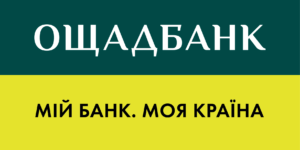
About 20% of Ukrainian IT specialists work abroad, while in 2023 their number increased to 65 thousand from 50-57 thousand a year earlier, according to the study AI Ecosystem of Ukraine: Talents, Companies, Education, prepared by the non-profit organization AI House and Roosh investment group with the support of the Ministry of Digital Information.
According to the data, the total number of IT specialists in Ukraine increased to 307 thousand in 2023 from 285 thousand in 2022.
According to Eurostat data cited in the study, Ukraine ranks second among Central and Eastern European countries in terms of the number of IT specialists, followed by Poland with 600.7 thousand.
At the same time, the number of AI/ML specialists has increased fivefold over the past 10 years, but as of January 2024, it amounts to slightly more than 1% – 5.2 thousand people.
“The active migration of specialists abroad as a result of the war leads to a shortage of qualified personnel in the domestic market, hindering the development of the industry,” the study says.
The most widespread professions among specialists are Data Scientists and ML Engineers, which together account for 63% of all AI/ML industry professionals. It is noted that these areas offer the highest salaries among IT specialties in the country. The average salary of a junior specialist in Ukraine is $1-1.5 thousand, and a senior specialist – $4.5 thousand.
Over the past 10 years, the number of product AI companies in Ukraine has increased by 3.7 times and reached 183 by 2023, while the number of service AI companies has increased by 46% to 60. Over the past four years, 34 companies specializing in artificial intelligence have opened. It is noted that 55% of the offices of Ukrainian AI companies are located in Kyiv.
At the same time, the country ranks last among the countries of Central and Eastern Europe in terms of the number of venture capital investments attracted over the past three years. The leaders are Poland, Lithuania, and the Czech Republic, which attract 12-16 times more funding than Ukraine, the study says. The probable reasons are the full-scale invasion of Russia and the registration of Ukrainian companies in European countries or the United States.
In 2023, the amount of venture capital investments that 22 Ukrainian companies managed to attract decreased by 31% to $10.8 million compared to 2022, which, according to the authors of the study, repeats the general trend of a decrease in such investments in the world. The war also complicates the process of negotiations between startups and potential investors to raise funding.

On June 17, JSC “Oschadbank” opened offers of bidders for voluntary medical insurance of employees with a budget of UAH 114.8 million, according to the e-procurement system “Prozorro”.
According to the report, the price offer of the only bidder IC “VUSO” amounted to UAH 114.2 million.
As reported, the company was the winner of a similar tender a year earlier.
IC “VUSO” was founded in 2001. The company holds 50 licenses: 34 – for voluntary and 16 – for compulsory types of insurance. It is represented in all regions of Ukraine. It is a member of ITSBU and UFS, a participant of Direct Loss Settlement Agreement and a member of Nuclear Insurance Pool.

According to analysts at Ukraine’s largest pet food producer Kormotech, the Ukrainian pet food market grew to 58.3 thousand tons in January-April, up 11.4% from the same period last year.
As the company told Interfax-Ukraine, Kormotech continues to grow faster than the market, with sales up 14% year-on-year, and the company’s market share by weight up 0.6%. Currently, Kormotech leads the top four manufacturers in the domestic market.
It is also noted that at the end of the year, Ukrainian Kormotech entered the top 50 global pet food producers and was ranked 49th in the ranking according to the American industry publication PetfoodIndustry.
“For the sixth year in a row, we are among the top 21 fastest growing companies in the petfood industry. This demonstrates the constant growth and demand for our product in the market. Moreover, despite the war, our foreign partners are ready not only to sell our products, but also to expand cooperation with Kormotech,” explained Rostyslav Vovk, CEO and co-owner of Kormotech.
PetfoodIndustry ranks the world’s largest companies by annual revenue.
The main competitors of the Ukrainian company, according to the co-owner, are Empresas Carozzi from Chile, Irish Dog Foods from Ireland, and Whitebridge Pet Brands from the United States.
In 2023, Kormotech’s turnover increased by 22.5% to $152 million from $124 million in 2022. The ratio of sales abroad and in Ukraine in tons is now 31% to 69%, respectively (in 2022 it was 28% abroad and 72% in Ukraine).
Kormotech brands grew most dynamically compared to last year’s sales in the markets of Romania (+35%), Poland (+11%) and Moldova (+11%). Over the past year, the company signed contracts with partners from Malaysia, started sales in Finland, and is actively developing in Spain and Italy, expanding its presence to 42 countries. At the same time, Kormotech retained its leading position in the Ukrainian market.
Kormotech is a global family-owned company with Ukrainian roots that has been producing high-quality cat and dog food under the Optimeal, Club 4 Paws, Woof! and Meow! brands since 2003. The company has production facilities in Ukraine and the EU, with a product range of over 650 items. Kormotech is a leader in Ukraine, one of the world’s top 50 pet food producers and one of the top 21 most dynamic pet food brands. The ultimate beneficiaries of Kormotech are Olena and Rostyslav Vovk.

JSC “OTP BANK” offers Ukrainian enterprises a number of loan programs that will allow them to become energy independent and ensure uninterrupted business operation in the face of electricity shortages. This was stated by Valeriy Terno, Head of Sales to Medium Corporate Clients at OTP Bank, during a roundtable discussion on energy independence organized by the Financial Club.
“The bank has set itself the goal of stimulating the development of the market for energy-independent solutions and providing support to businesses in financing such projects. We prepare optimal offers and favorable conditions for each client. We are talking about low interest rates and the possibility of implementing them under government programs, as well as cashback, and with additional guarantees from the state, the EBRD, and other institutional investors, we will be able to further expand the decision-making criteria for implementing certain projects. We already have successful cases in this direction,” said Mr. Terno.

In particular, small and medium-sized businesses can count on financial support from OTP Bank under the program “Affordable Loans 5-7-9%”, which is being implemented by the government at the initiative of the President of Ukraine through the Entrepreneurship Development Fund.
Also, the joint program with the European Bank for Reconstruction and Development allows us to offer investment loans to SMEs with the possibility of compensating part of the costs financed by the Bank’s credit funds. This loan can be used for long-term investments in green technologies (energy-efficient equipment, solar panels for power plants to meet their own needs) that meet European Union standards and will help increase the competitiveness of enterprises in domestic and foreign markets. After the implementation of the projects, customers will be able to apply for investment incentives (cash compensation, cashback).
“By installing solar panels or other elements, including gas turbine or gas piston stations, entrepreneurs will be able not only to ensure their own energy independence but also to sell the remaining energy produced to the grid, thereby contributing to the country’s energy security,” added the Head of Sales to Medium Corporate Clients at OTP Bank.

Until June 20, regional power distribution companies will apply hourly blackout schedules across Ukraine from 00:00 to 24:00, NPC Ukrenergo announced on its Telegram channel on Wednesday.
“The reason is the high level of consumption due to the heat and working days,” the system operator said.
Power supply to critical infrastructure facilities is not limited.
2022-2024 goods trade balance forecast (USD bln)

Source: Open4Business.com.ua and experts.news